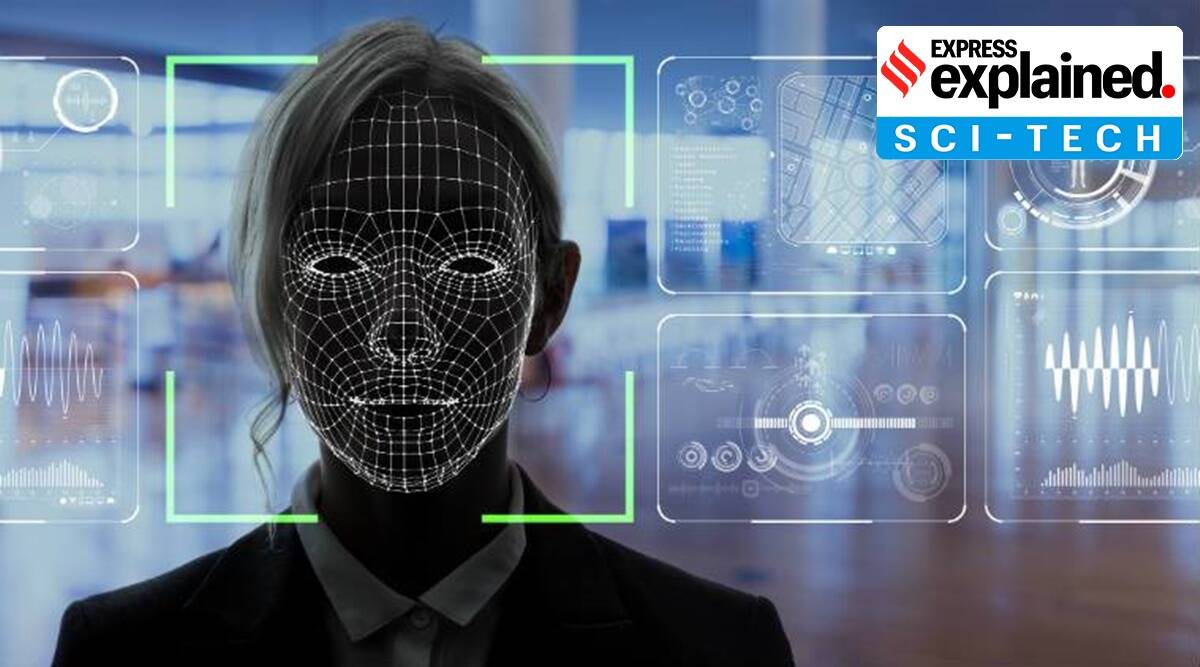Explained: Why Australia’s top retailers are under investigation for using facial recognition tech
Two retail chains in Australia, Bunnings and Kmart, are being investigated for using facial recognition technology and storing data of their customers without their knowledge. What is this technology, and why is it controversial?
 Facial recognition technology works by capturing people’s faces from photographs or video footage as a unique faceprint. (File Photo)
Facial recognition technology works by capturing people’s faces from photographs or video footage as a unique faceprint. (File Photo)Two of Australia’s top retail chains are under investigation after a report revealed that they were using intrusive face recognition technology and collecting data in their stores without their customers’ knowledge.
The Office of the Australian Information Commissioner (OAIC) announced on Tuesday that it was investigating the personal information handling practices of home improvement chain Bunnings and big box retailer Kmart following a report by consumer advocacy group CHOICE.
This is not the first time the use of facial recognition technology in Australia has stoked fears about privacy. Activists and human rights organisations have flagged the widespread use of the technology, warning it could potentially result in the country becoming a surveillance state.
But first, what is facial recognition technology?
Facial recognition technology works by capturing people’s faces from photographs or video footage as a unique faceprint. The image is then saved and can be compared to other faceprints stored in a common database. While this technology can help verify a person’s face, it also raises several privacy issues.
Most commonly, one encounters facial recognition technology while unlocking their smartphone. Today, even low-cost smartphones are able to identify faces.
While it is commonly used by law enforcement authorities around the world, most big technology companies also offer some sort of facial recognition tools. Last year, Facebook announced it was phasing out its facial recognition system due to growing concerns surrounding the use of such technology. Several leading tech companies like Microsoft and Amazon have said they will not sell the technology to law enforcement until there is a federal law regulating it in the US.
In India, too, facial recognition technology is gaining prominence. For instance, the Centre has launched a biometric-based authentication system called DigiYatra, under which travellers will be able to authenticate themselves at several major airports using facial recognition technology.
Why are Australian retail chains being probed for facial recognition technology?
Australia’s privacy regulator has announced it is investigating the use of facial recognition technology by Bunnings and Kmart at their stores. Meanwhile, the companies have said they employed the technology to better protect their staff and customers, and to prevent incidents of shoplifting, The Guardian reported.
Last month, CHOICE reported the two companies, both of which are owned by Wesfarmers Ltd, as well as the appliances chain The Good Guys to the OAIC. The CHOICE investigation found the companies were “capturing the biometric data of their customers”, and that about 76 per cent of customers did not know the technology was being used in stores, Australian news network ABC reported.
Soon after, The Good Guys announced it was pausing the use of the technology, ABC reported.
“The Good Guys take the confidentiality of personal information extremely seriously and remains confident that the trial complied with all applicable law,” the company announced. “The technology was solely used to review incidents of theft, and for the purposes of customer and team member safety and wellbeing.”
This is not the first time retailers in Australia have come under fire for using facial recognition technology. Last year, the OAIC directed the Australian 7-Eleven chain to destroy “faceprints” collected at 700 convenience stores on iPads set up to run customer surveys, according to an Al Jazeera report.
Why the use of facial recognition tech is controversial in Australia
Even before the CHOICE investigation, there were widespread calls across Australia for laws to regulate the use of facial recognition technology. Activists warn there is a risk of faceprints and data gathered through these technologies being used for secondary purposes.
According to a BBC report, the Australian Department of Home Affairs has been building a face recognition database since 2016. This year, it issued a tender calling for companies to “build and deploy” the data.
While a law to regulate these technologies was proposed in 2019, it was later shelved after a parliamentary committee review found it to be inadequate.
Critics of facial recognition technology warn of its propensity for racial discrimination and bias. Particularly since many of these applications are built based on datasets that may not be representative of all communities or ethnicities.
During the Covid-19 pandemic, law enforcement authorities were able to track the whereabouts of people under home quarantine through facial recognition technology. People were required to send police officials a message and a selfie periodically. Through face recognition and GPS tracking, authorities were able to confirm whether they were, in fact, at home.
Australia was one of the only democracies worldwide to use this technology to help facilitate Covid-19 containment.
- 01
- 02
- 03
- 04
- 05





































